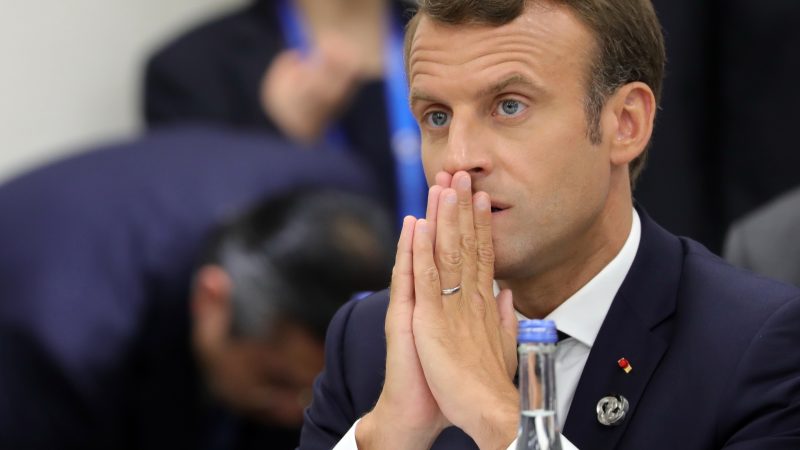According to new opinion polls, France’s Renaissance (RE) party is trailing the right-wing National Rally (RN) by a considerable margin. A recent article published on Wednesday by The Guardian states that the blame for the RE’s poor polling rests with President Emmanuel Macron. The two parties were tied in the last European election, which took place five years ago.
Elections for the European Parliament are scheduled to take place between June 6 and June 9. These elections will provide a clear indication of how the presidential election in France, set for 2027, might unfold.
The article suggests that Macron, 46, “has himself to blame for his political predicament.” Despite being just two years into his second term, Macron lacks a parliamentary majority and faces a government under the constant threat of a no-confidence motion. The article also highlights how Macron has personalized his style of governance, resulting in voters blaming him for various issues, including the cost of living, the rise of youth violence, and the risk of terrorism during this summer’s Paris Olympic Games.
The RN is being led by Jordan Bardella, who became the president of the party in 2022. Bardella, 28, does not carry the same legacy as his party’s former president, Marine Le Pen. However, he reportedly joined the party due to Le Pen’s influence. While Le Pen’s impact on the RN remains strong, younger voters are more inclined towards Bardella.
Macron was elected in 2017, becoming France’s youngest head of state apart from Napoleon Bonaparte. However, now, Macron appears to be struggling to align with the desires of the French public.
“I think it is less about ‘Frenchness’ in this election than portraying people who feel they don’t belong, who feel humiliated, either economically—not making ends meet, not being recognized, or not seeing themselves represented in parliament or politics,” said Cécile Alduy, a Professor of French at Stanford University, in an interview with a German broadcaster.
A separate survey published in March shows that Macron’s party has lost favor among young French voters. Just 4% of those aged 18 to 24 expressed their intention to vote for Macron’s party next month, compared to 29% among those over the age of 70.
Alduy explains that the reason for this is that younger voters have little to no historical memory of Nazism during World War II, a topic for which the RN has faced criticism for not fully shedding its antisemitic heritage.
Another article by Financial Times attributes Macron’s drop in popularity to the cost of living. An opinion poll from February showed that this issue was the primary concern of French voters. The drop in consumer confidence among the French indicates pessimism about their future.
Another issue affecting France’s economy is its high budget deficit, which last year rose to 5.5% of GDP. “Macron’s government has already had to announce emergency spending cuts, and more may be on their way in areas such as social benefits and local government budgets,” the newspaper suggests, adding that this could influence the results of the 2027 election.
However, the news outlet adds that while many French people use the EU elections to cast protest votes against their presidents and governments, they may vote differently in a national election.
